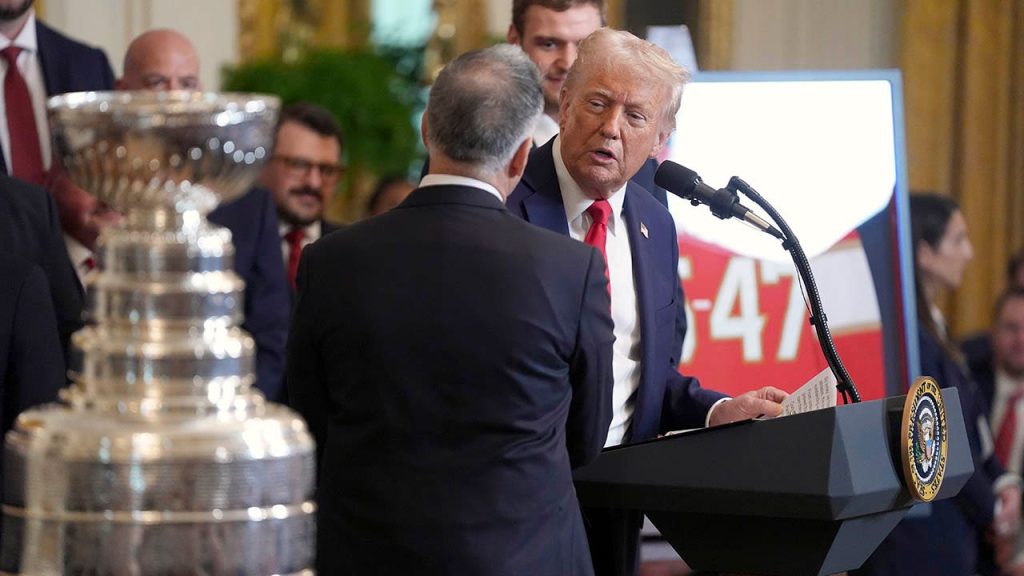President Donald Trump’s off-the-cuff remark about Afghanistan during a celebratory White House visit by the Florida Panthers, Stanley Cup finalists, ignited a brief but pointed discussion about the long and complex history of US involvement in the country. While ostensibly a lighthearted event honoring the team’s achievements, Trump’s comment, directed at team owner Vincent Viola, layered the occasion with the weight of political subtext and renewed scrutiny of past administrations’ decisions regarding the Afghan conflict.
The context of Trump’s comment arose from his praise of Viola’s military background and purported strategic acumen. Trump, highlighting Viola’s passion for the military and his experience at West Point and with the 101st Airborne Division, mused that Viola should have been in charge of the Afghanistan operation, suggesting a different outcome. This seemingly impromptu remark touched a sensitive nerve, rekindling the debate surrounding the efficacy and ultimate consequences of the two-decade-long US engagement in Afghanistan.
Trump’s presidency witnessed a continuation of the war in Afghanistan, inherited from previous administrations. He initially increased troop deployments before ultimately negotiating a withdrawal agreement with the Taliban in 2020, setting the stage for the complete withdrawal under the Biden administration in 2021. This withdrawal, culminating in the chaotic evacuation from Kabul and the tragic loss of American lives and Afghan civilians in a suicide bombing at Hamid Karzai International Airport, became a highly contentious political issue. Trump’s allusion to Viola’s potential role in Afghanistan served as an implicit critique of the strategies employed by prior administrations, including his own, and perhaps a veiled suggestion of what he perceived as missed opportunities.
The US intervention in Afghanistan, launched in the wake of the 9/11 terrorist attacks, aimed to dismantle Al-Qaeda, topple the Taliban regime, and establish a stable democratic government. Over the course of two decades, the conflict evolved into a complex nation-building effort fraught with challenges, including persistent Taliban insurgency, endemic corruption, and the difficulty of establishing lasting security and stability. The ultimate withdrawal of US forces in 2021 marked the end of a costly and protracted engagement, leaving behind a nation grappling with political uncertainty and humanitarian crisis.
Trump’s statement, while brief, tapped into a wellspring of unresolved questions regarding the war in Afghanistan. The comment resurrected discussions about the effectiveness of the initial invasion, the subsequent nation-building efforts, the strategic choices made by successive administrations, and the ultimate impact of the US presence on Afghan society. It also highlighted the ongoing debate about the responsibility for the tumultuous withdrawal and its aftermath, with Trump implicitly shifting blame away from his administration’s negotiated agreement with the Taliban.
While Trump’s comment was seemingly directed at praising Viola’s military experience, its broader implications resonated far beyond the celebratory context. It re-opened the conversation about a conflict that continues to cast a long shadow over American foreign policy, prompting reflection on the lessons learned and the enduring consequences of the US involvement in Afghanistan. The casual setting, juxtaposed with the gravity of the subject matter, underscored the enduring sensitivity and political ramifications of the Afghan war.

